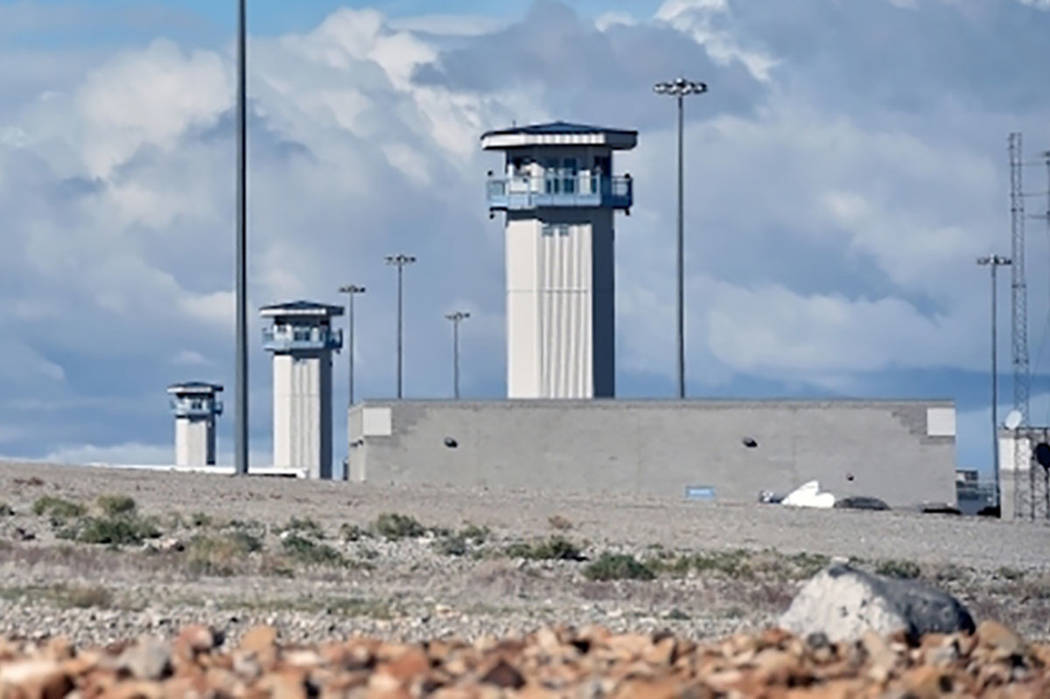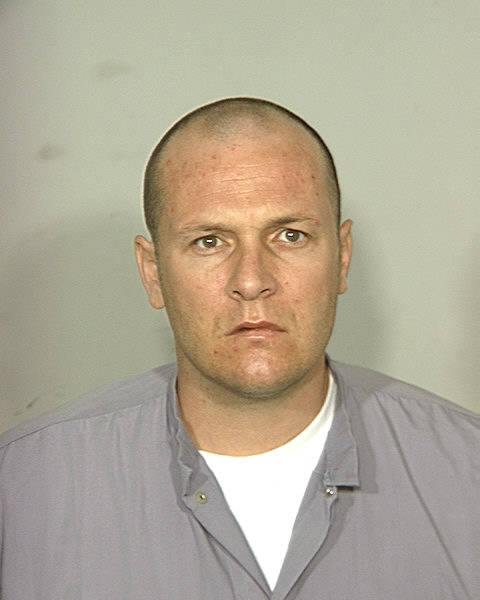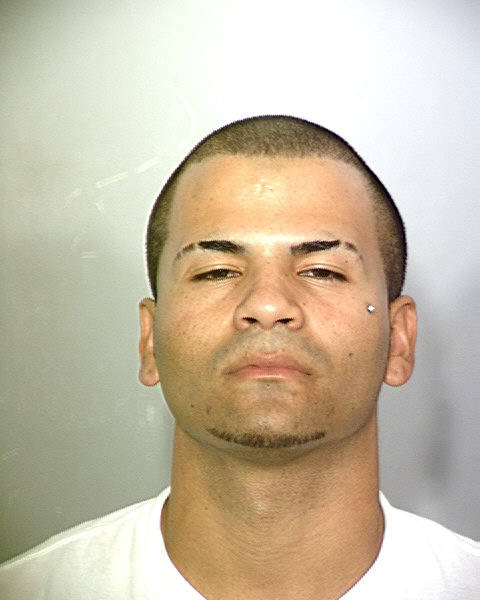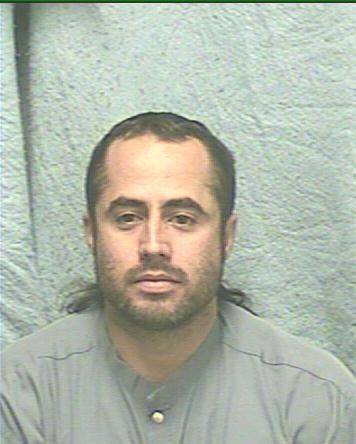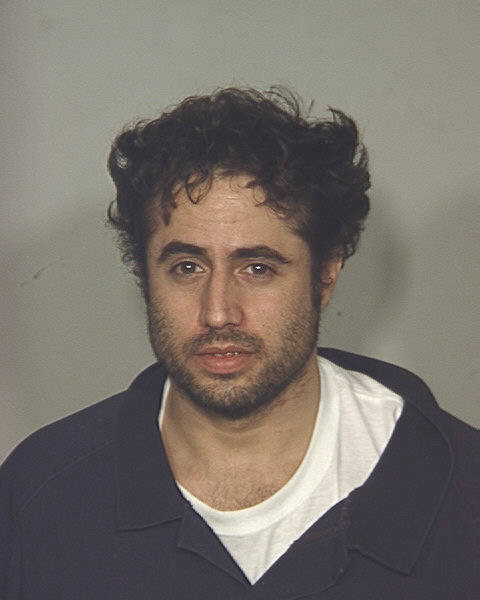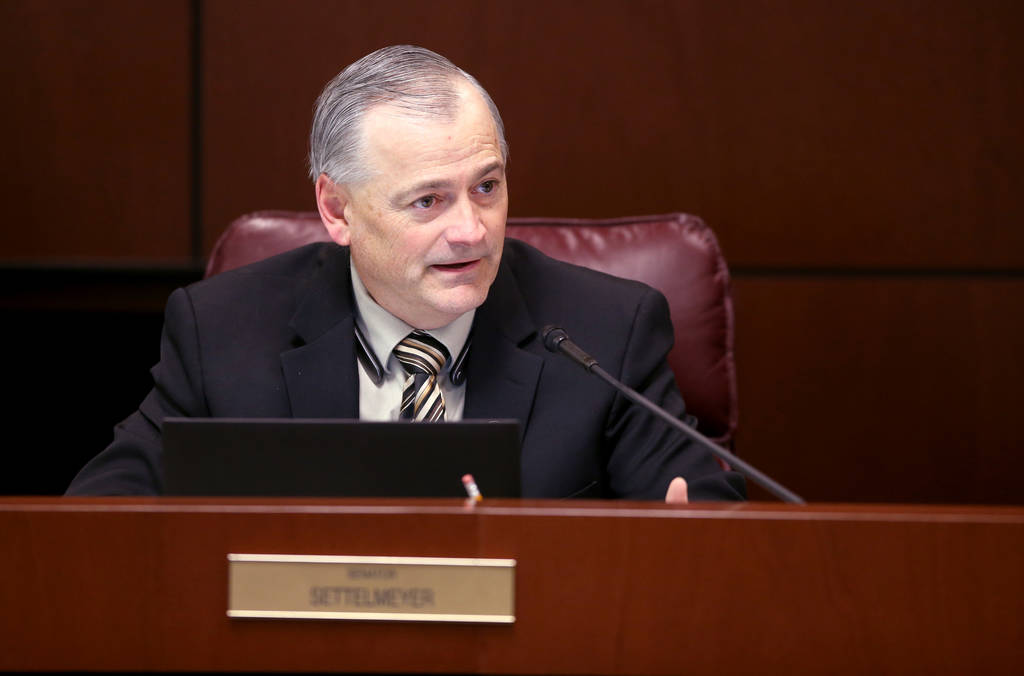Nearly 200 repeat felons in Nevada prisons are undocumented immigrants
As many as 1 of every 14 Nevada inmates is an undocumented immigrant and nearly one-fifth of those criminals had prior felony convictions in the United States, showing the felon either wasn’t deported or returned to the country to commit another crime, a Las Vegas Review-Journal investigation found.
About half of Nevada’s roughly 1,000 undocumented inmates have been convicted of a violent crime, including about 150 sentenced for murder, attempted murder or manslaughter. Another 320 undocumented immigrant inmates were convicted of sexual assault, with about 240 of those involving victims under 16, Nevada Department of Corrections data shows.
The undocumented immigrant felons are costing Nevada taxpayers more than $21 million a year to house, but the U.S. Department of Justice reimburses the state for a fraction of those expenses, records show.
President Donald Trump has made undocumented immigrants and the crimes they commit a central theme of his campaign and presidency — touting raids in early July that he promised would rid the country of thousands of undocumented criminals. But despite Trump holding office for 2½ years, statistics show the number of completed immigration hearings is down and arrests of convicted felons have leveled off.
“Those are pretty shocking stats,” Senate Minority Leader James Settelmeyer, R-Carson City, said after the Review-Journal informed him of the numbers. “But they need to serve time (in Nevada) for serious felonies. If we send the individuals back to their country, within a month they’re back.”
Assistant Senate Minority Leader Joe Hardy, R-Boulder City, said Congress needs to appropriate more money to reimburse states and make sure felons stay out of the United States.
“How many kids could you educate with $21 million?” he said. “How many people with Medicaid could you treat for $21 million?”
U.S. Sen. Catherine Cortez Masto, D-Nev., said her first piece of legislation proposed prioritizing deportations of undocumented criminals, but the bill has not passed the Senate.
“I’ve always been a strong advocate since my time as attorney general for the deportation of those individuals convicted of serious crimes, and for the rights of immigrant communities,” she said in a written statement. “I’ll continue fighting for common sense immigration reform that actually keeps our communities safe, our families together, and our economy stronger.”
Tropicana rape
Richardo De La Mora is one of Nevada’s undocumented immigrant repeat offenders currently incarcerated at High Desert State Prison, records show. In 2013, just weeks after his release from a Nevada prison, he stole a car and drove down Tropicana Avenue, trolling for his next victim.
The 20-year-old recently released felon and gang member, with an accomplice, pulled up in front of a young woman walking on Tropicana Avenue. De La Mora shoved her into the back seat of the car and, as his accomplice drove around the city, he beat, threatened to pimp and promised to gang rape the woman, court records show.
“I was like stop, stop, no, stop it, stop and he wouldn’t stop. And then he got in between my legs,” she told a Clark County grand jury about the July 11, 2013, assault. “He took his hand off my neck and grabbed one of my hands and put it over to one side and that’s when he started to rape me.”
De La Mora had just spent less than two years in a Nevada prison for a 2011 carjacking arrest that he pleaded down to conspiracy to commit robbery, court records show. Having come into this country illegally from Mexico, he was picked up by Immigration and Customs Enforcement agents when he was paroled in 2013. But ICE officials freed him on an ankle bracelet pending his immigration hearing, giving him the opportunity to commit the assault.
ICE spokeswoman Virginia Kice said the decision to release De La Mora “was made by ICE following a comprehensive review of his circumstances.”
“ICE makes custody determinations on an individual basis, taking into account all aspects of a case, including the person’s immigration and criminal history, their ties to the community, whether they pose a flight risk, and the availability of detention space,” Kice, who has since retired, wrote in an emailed statement.
De La Mora’s victim escaped when he sent her into a convenience store to get him beer and she signaled to a customer to call police. In 2015, De La Mora pleaded guilty to sex assault, kidnapping and robbery and was sentenced to life with the possibility of parole after 20 years, court records show. His attorney declined comment.
During a brief interview with the Review-Journal, the victim said she didn’t know De La Mora was in the country illegally but declined further comment.
Nevada prisons
Of the approximately 170 repeat offenders in Nevada prisons, ICE officials agreed to provide detailed information on De La Mora and a handful of others. But after more than two years, the agency has not released comprehensive information about the remaining undocumented repeat offenders despite a federal Freedom of Information Act request.
Statistics show the immigration courts have had trouble making timely determinations about whether to deport or allow a person to stay in the country. Nationwide, immigration courts completed 35,000 fewer cases last year than in 2008, Executive Office of Immigration Review statistics show. The statistics do not break out cases completed for undocumented immigrants who were convicted of crimes.
Court spokeswoman Teresa Kaltenbacher wrote in an email that the courts completed more cases through May of this fiscal year than in each of the 2014, 2015 and 2016 fiscal years, but she did not respond to inquires about the decline of completed cases in 2017 and 2018 compared with a decade earlier. She also did not provide statistics showing how many of those cases involved immigrants with criminal convictions.
Nationwide, ICE picked up nearly 11,000 more undocumented immigrants with felony convictions in the 2017 fiscal year than the prior year. That leveled off in the 2018 fiscal year, dipping by about 600 arrests. ICE arrests of undocumented immigrants who haven’t been convicted but face pending charges went up more than fivefold in the past three fiscal years, with nearly 33,000 arrests last year.
National statistics and studies show that undocumented immigrants commit fewer crimes than the general population.
But the ones who do are costing taxpayers a substantial amount, according to data of federal reimbursements to local jails and state prisons for incarcerating undocumented immigrants.
In Nevada, 11 jurisdictions received a total of $2.4 million in 2017 from the Justice Department for nearly 4,000 undocumented immigrant inmates, according to the most recent statistics available.
In the 2019 fiscal year, Nevada DOC received slightly more than $1 million, according to the state. NDOC estimates it costs about $22,000 a year on average to incarcerate an inmate, meaning state taxpayers pay more than $21 million a year for Nevada’s undocumented population.
DOJ officials who run the reimbursement program did not respond to a request for comment, but the agency’s website says state grants are based on the prorated amount appropriated for the program.
Nationally, the federal government reimbursed local and state corrections facilities nearly $190 million in 2017 for incarcerating undocumented immigrants under the State Criminal Alien Assistance Program. More recent figures were not yet available from the federal government.
ICE miss
Daryl Willsey had repeated run-ins with the Metropolitan Police Department, but ICE determined he could be deported only toward the end of his increasingly violent criminal history.
Willsey came from the United Kingdom legally with his family at 6 years old but never gained citizenship.
In 2003, Willsey’s boss at a tire shop confronted him about drinking on the job and the then-26-year-old knocked out his boss with a punch to the face. Willsey pleaded guilty to battery with substantial bodily harm, a deportable offense even for legal immigrants. Neither ICE nor local authorities identified him as a noncitizen to put an immigration hold on him when he was released.
Within four years, he pleaded guilty to auto theft after beating the boyfriend of a former girlfriend, stealing the man’s vehicle and threatening to shoot police when they cornered him at home, court and police records show. A judge sentenced him to one to three years in prison, but Willsey never appeared to serve his time.
A judge issued a warrant for his arrest, but Willsey still was not on ICE’s radar.
Then, in July 2008, he went on a crime spree with an accomplice that included pistol whipping a Las Vegas man and kidnapping the man’s brother to steal his vehicle. As they fled, Willsey’s accomplice plowed into the back of a car driven by Las Vegas resident Jana Close, court records show.
Close said she was headed down Sahara Avenue toward her home when the car Willsey was in hit her. Thinking it was a hit-and-run, she said she followed the car to get the license plate number for police and her insurance company.
The driver crashed the vehicle a second time and Willsey, wielding a handgun, jumped into Close’s car, court records show.
“He put the gun to my head and said drive and I told him I use the car to transport my daughter to and from school and to please let me go,” she told the Review-Journal. “He said, ‘If you want to see your daughter again you’ll go right.’ He could have shot me or raped me and no one would have cared.”
Victim escapes
Close had to think quickly to escape her captor.
She grabbed Willsey’s gun, which went off during the struggle, shooting out her sunroof. He hit her in the face with the gun, court records show.
Close jumped out of her vehicle and Willsey sped off. She ran to a house for help, according to court records and Close’s interview with the Review-Journal.
Close identified her assailant, and he pleaded guilty to kidnapping, robbery and conspiracy. ICE finally noticed he was not a citizen and placed an immigration hold on Willsey to start deportation procedures when he completed his Nevada prison sentence.
Willsey served out his sentence in October 2017 and ICE picked him up on the immigration hold. A judge ruled he should be deported, and he left the United States on March 18, 2018, according to a statement from ICE.
Close said she is still traumatized by the events that happened nearly a decade ago. She can’t go near the area of the incident and has panic attacks when she sees blood or hears a loud sound. She said she’s still in therapy and can’t hold a job.
She didn’t know Willsey was not a citizen and didn’t know about his prior crimes.
“They wouldn’t tell me anything; they just said he was a bad guy,” Close said. “If you do commit a violent act and your status isn’t permanent, you should be thrown out. You need to go back. You shouldn’t be allowed to commit a crime and stay in the country.”
U.S. Rep. Mark Amodei, R-Nev., agreed.
“We ought to be doing oversight on this,” he said after the Review-Journal told him about the investigation’s findings.
Contact Arthur Kane at akane@reviewjournal.com. Follow @ArthurMKane on Twitter. Review-Journal Washington, D.C., Corespondent Gary Martin contributed to this story.
Related
Some countries refuse to take back criminals facing deportation



